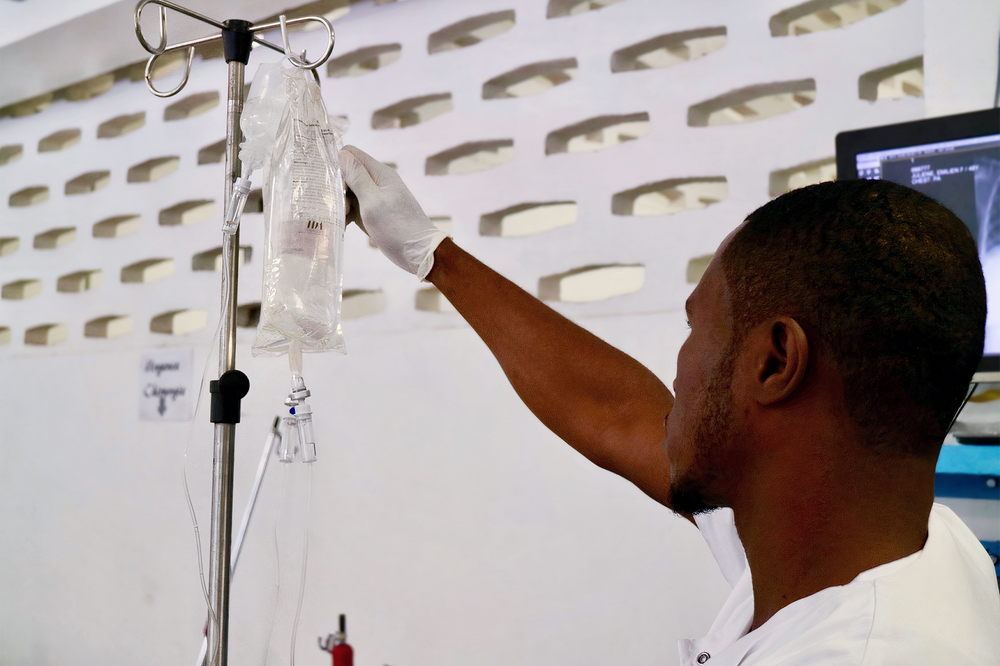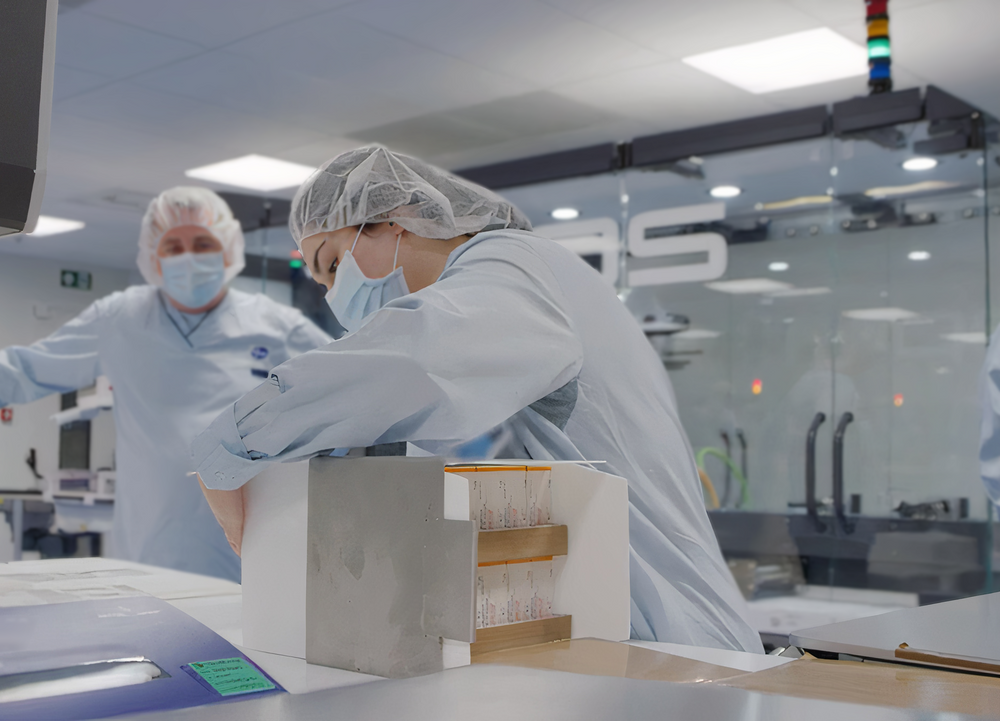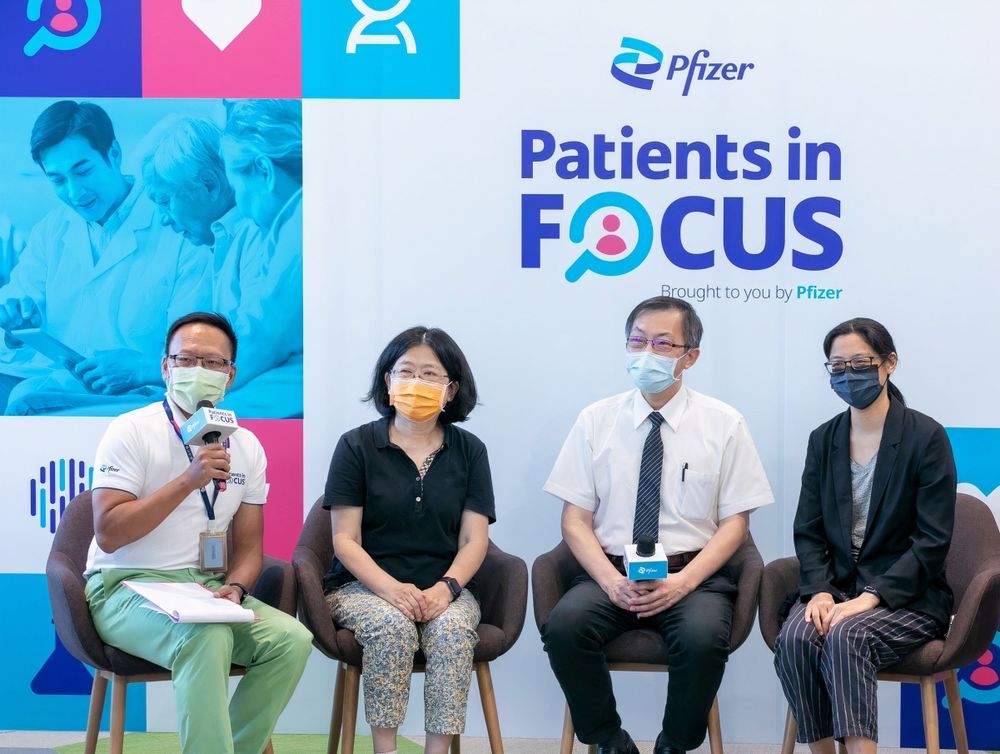Working to End the Pandemic For People All Over the World
Pfizer is actively working with governments and health partners around the world toward fair and equitable access to COVID-19 vaccines and treatments. We’re also providing expertise and resources to help strengthen health care systems that need greater support. To accelerate efforts to reach vulnerable populations, we have pledged to provide 2 billion doses of our COVID-19 vaccine to low- and middle-income countries in 2021 and 2022 – at least 1 billion doses each year.
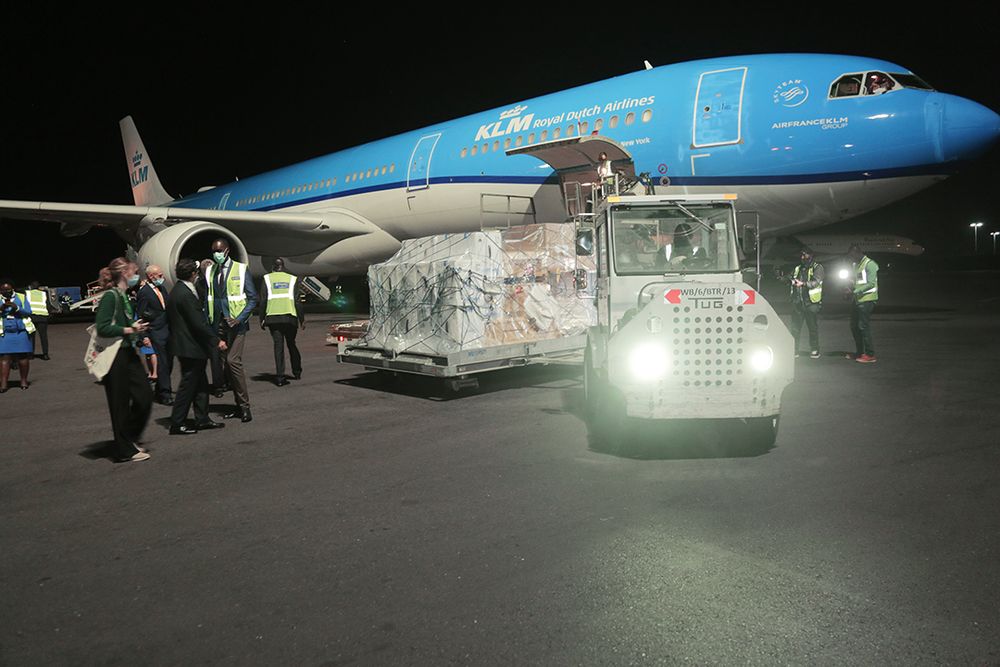
Pfizer-BioNTech COVID-19 vaccine doses arrive in Kigali, Rwanda.
To do this, we have established direct supply agreements with country governments and supply agreements with supranational organizations like the World Health Organization-led COVAX Facility as well as partnerships with wealthy nations to provide doses to countries in need and humanitarian donations to reach refugee populations.
In 2021, Pfizer and BioNTech reached an agreement with the U.S. government (USG) to provide one billion doses of our COVID-19 vaccine at the not-for-profit price — 200 million doses in 2021 and 800 million in 2022. The U.S. government is donating these doses to Africa and to the 92 COVAX Advanced Market Commitment (AMC) low- and lower-middle- income countries. The first USG-donated shipment reached Rwanda on August 18, 2021, and, since then, we have worked closely with the U.S. government, the COVAX Facility and country governments to supply doses to populations in need, reaching nearly 80 countries in just the first four months of the initiative.
In addition to the USG program, we have worked closely with the European Union to coordinate their donation of vaccine doses from excess supply to countries in need.
To reach vulnerable refugee populations as part of a collaboration with the Jordanian Ministry of Health and United Nations High Commissioner for Refugees (UNHCR), Pfizer and BioNTech donated 200,000 vaccine doses to the country to replace the doses Jordan had administered to refugees from its national supply. This donation is intended to help Jordan to effectively and efficiently manage a national vaccination program to reach its entire population while ensuring that additional support is provided to protect the most vulnerable. Additionally, as part of the companies’ collaboration with Lebanon’s Ministry of Health and UNHCR, Pfizer and BioNTech will also donate up to 600,000 vaccine doses to Lebanon to replace doses administered from its national supply. The first shipment with 100,000 doses reached Lebanon in September 2021. The remaining doses will be delivered when requested by the country.

Because we know that it is not just vaccines that will help bring an end to this pandemic, but vaccinations, we are working closely with global health partners to provide expertise and resources that strengthen healthcare systems where greater support may be needed and support country efforts to deliver and administer vaccines to remote and underserved populations.

We have expanded our partnership with drone delivery service Zipline, Inc. to distribute vaccines requiring cold chain, including our COVID-19 vaccine to some of the most remote areas of Africa. In Ghana, a country where around 40 percent of the population lives in rural areas, Zipline’s drones will bring doses to many of these areas. Zipline plans to replicate this novel delivery model in other countries, moving next to Nigeria where there are similar challenges reaching remote regions.
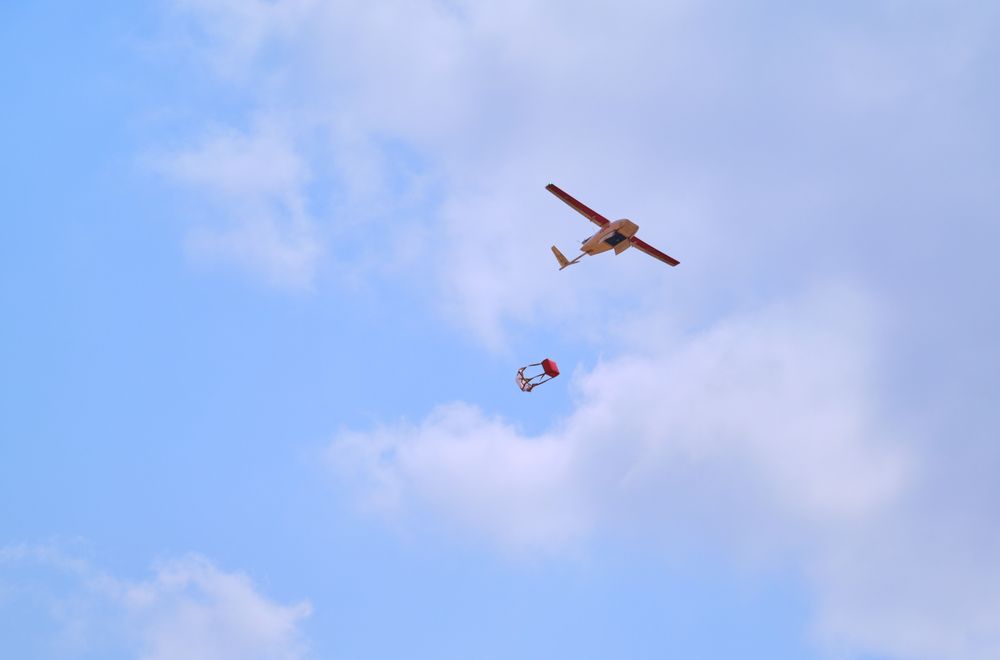
Covid-19 Vaccine drop from Zipline drone in Ghana.
Looking ahead to the potential introduction of our COVID-19 oral treatment candidate, Pfizer is focused on strategies to help ensure that this novel treatment, if authorized or approved, can reach those most in need. In November 2021, Pfizer and the Medicines Patent Pool (MPP), a United Nations-backed public health organization working to increase access to life-saving medicines for low- and middle-income countries, announced the signing of a voluntary license agreement for Pfizer’s COVID-19 oral treatment. MPP will grant sub-licenses to qualified generic medicine manufacturers to facilitate additional production and distribution of the treatment to up to approximately 53 percent of the population living in in low- and lower-middle-income countries as well as some upper-middle-income countries with a disproportionate number of people living in poverty.
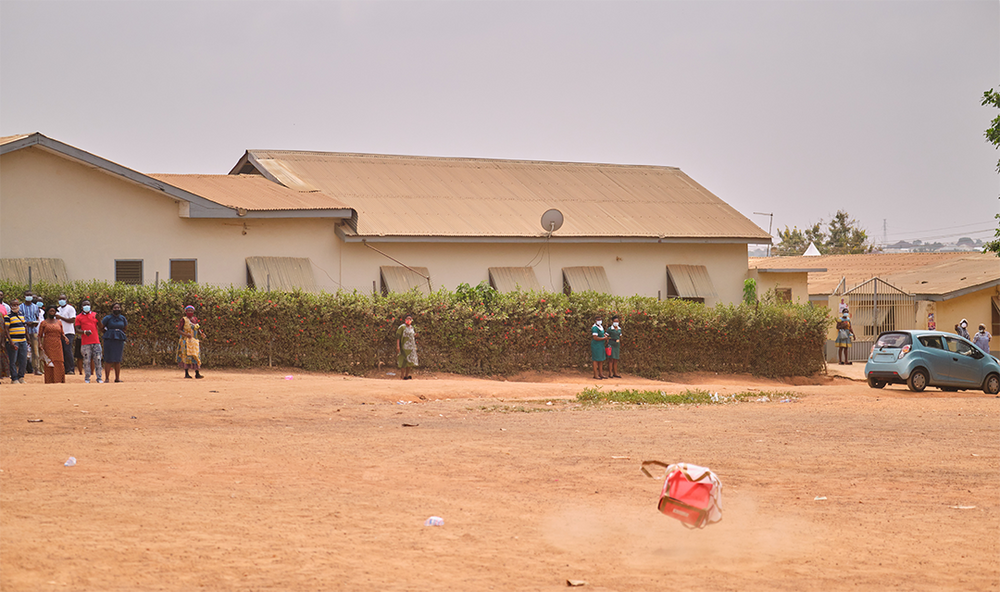
COVID-19 vaccine delivery outside of rural Health Center in Ghana.
